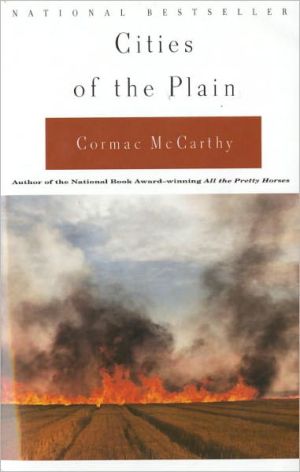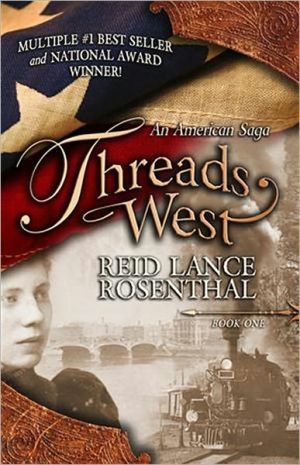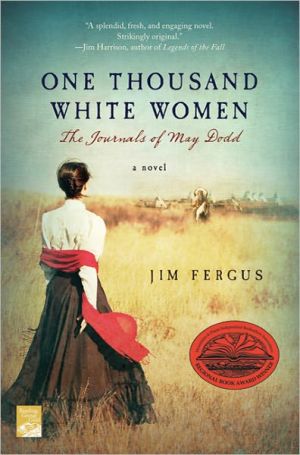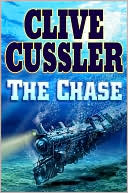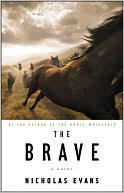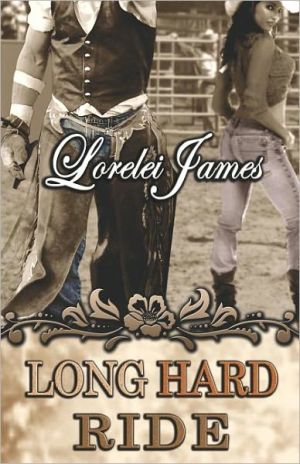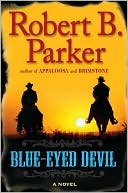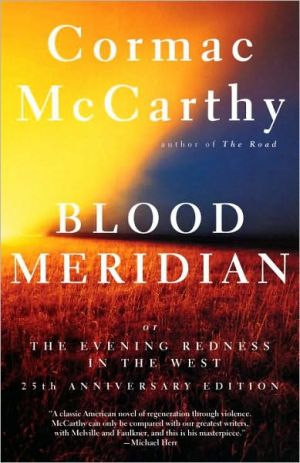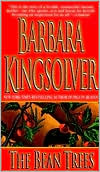Cities of the Plain (Border Trilogy Series #3)
In this magnificent new novel, the National Book Award-winning author of All the Pretty Horses and The Crossing fashions a darkly beautiful elegy for the American frontier. \ The setting is New Mexico in 1952, where John Grady Cole and Billy Parham are working as ranch hands. To the North lie the proving grounds of Alamogordo; to the South, the twin cities of El Paso and Juarez, Mexico. Their life is made up of trail drives and horse auctions and stories told by campfire light. It...
Search in google:
In this magnificent new novel, the National Book Award-winning author of All the Pretty Horses and The Crossing fashions a darkly beautiful elegy for the American frontier. The setting is New Mexico in 1952, where John Grady Cole and Billy Parham are working as ranch hands. To the North lie the proving grounds of Alamogordo; to the South, the twin cities of El Paso and Juarez, Mexico. Their life is made up of trail drives and horse auctions and stories told by campfire light. It is a life that is about to change forever, and John Grady and Billy both know it. The catalyst for that change appears in the form of a beautiful, ill-starred Mexican prostitute. When John Grady falls in love, Billy agrees—against his better judgment—to help him rescue the girl from her suavely brutal pimp. The ensuing events resonate with the violence and inevitability of classic tragedy. Hauntingly beautiful, filled with sorrow, humor and awe, Cities of the Plain is a genuine American epic.David BowmanCormac McCarthy is an absolutely original writer. No one writes books like Cormac McCarthy. No other American writes sentences like Cormac McCarthy. In reading his new novel, Cities of the Plain, I came across a passage that could serve as a sublimated self-portrait of the author himself. Let me substitute the word "writer" for "horse" to illustrate: A good writer [horse] will figure things out on his own. You can see what's in his heart. He won't do one thing while you're watchin' him and another when you ain't. He's all of a piece. When you've got a writer [horse] to that place you can't hardly get him to do somethin he knows is wrong. He'll fight you over it. And if you mistreat him it just about kills him. A good writer [horse] has justice in his heart. I've seen it.Cormac McCarthy's heart is something else. For years, the man's mad muscle was pumping Faulkner, Faulkner, Faulkner. Between 1965 and 1979, McCarthy wrote four novels set in the South. These titles began at the demented places where Faulkner left off. We're talking necrophilia and incest and cannibalism -- all done southern style. Cormac McCarthy raked Faulkner's ashes from the American South to Dante's Inferno to a place that might as well have been the planet Mars.Then, in the late '70s, McCarthy left Dixie in both body and fiction. The man moved to El Paso, Texas, where he wrote a holy Hieronymus Bosch/Sam Peckinpah of a novel about 19th-century scalp hunters in Mexico, titled Blood Meridian. This is truly one of the most amazing books of the 20th century. This is a book that academics are making their careers on.Sad to say, it was only academics and critics and foundations that give grants to geniuses who were actually reading McCarthy back then. But in the '90s, he joined the stable of a certain big-shot agent with the silly name of Binky. Then Knopf bigshot Gary Fisketjon became his editor. Literary muscle triumphed and McCarthy's next book became a bestseller. His next one, too. And here comes his third -- the final volume of the Border Trilogy, three titles about cowboys and horses in the mid-20th-century.And McCarthy's cowboys are boys. It's traditional for young men to write coming-of-age stories. You know some of these writers. I do too. (I was once one myself.) There is a false innocence in these bildungsromans -- a hidden tension created because youthful writers still need to be weaned into experience themselves. Not so with Cormac McCarthy's coming-of-age novels. His books contain scenes of true innocence. He achieves this not just because he's an experienced old guy but because he's an experienced old guy who has written about necrophilia and incest and cannibalism. That man left his innocence by the side of the road years ago. This gives him the freedom to write beautifully of the unabashed purity in the wills of young cowboys.McCarthy's trilogy begins with All the Pretty Horses. The year is 1949 and 16-year-old John Grady has ridden off with his pal Lacey Rawlins down into Mexico. They have adventures with horses and death and John Grady falls in love with a Mexican girl named Alejandra. Next is The Crossing, set ten years earlier, in the late '30s. It's about another 16-year-old, Billy Parham, and his journey south into Mexico to set a she-wolf free. Now Cities of the Plain closes the trilogy, bringing Billy Parham and John Grady together as cowboys working in the same south-Texas outfit. John Grady -- only a little bit older than he was in All the Pretty Horses -- falls in love with another Mexican girl. This one works in a Mexican brothel. She is also an epileptic. Billy Parham -- much older than he was in The Crossing -- unsuccessfully tries to talk Grady out of spiriting the girl north. Then Parham must come to Grady's aid because things happen.You will read things you've never read in a novel. Some of these things are small details: how a horse's ears betray a hidden lameness. How a woman at a gas station becomes hysterical after seeing a hellish collection of severed heads in the grill of a car in the opposite pump. You will also read scenes of high drama. There is a knife fight between John Grady and a Mexican pimp named Eduardo that goes on and on and on. The single survivor of the novel will experience an epilogue that's part biblical parable with overtones of science fiction.I will tell you again: You have never read a book like this before. Even if you've read All the Pretty Horses and The Crossing.Now let me tell you a rumor. Supposedly Cities of the Plain was where McCarthy started the Border Trilogy. The book was originally a screenplay. Then McCarthy became interested in the backstories of John Grady and Billy Parham. He wrote those stories first.Here's another rumor. You probably already know it: McCarthy is a terrible recluse. He isn't as much a phantom as Salinger or Pynchon, but the man has only given two interviews in 30 years. "That's just a myth about his reclusiveness," Garry Fisketjon, McCarthy's editor, tells me. "Cormac just doesn't move in writerly circles. He knows all sorts of folks. All walks of life. It's an amazing acquaintance over the years. He's far more social than people would expect."So do any of you know Cormac McCarthy? It there a way to share your experiences with me? Today I got this e-mail from a fellow Cormac McCarthy freak: "David, I've driven by his house in El Paso, but didn't feel comfortable banging on the door. But his house is what you'd expect: a ramshackle faux-adobe structure with 2 rotting cars in the yard. This in the midst of an upper middle-class neighborhood of university professors. Weird...."Is this true? Are any of you Cormac McCarthy's neighbors? Do you hear his typewriter clicking deep into the Texas night? I tell you in all sincerity, I cannot believe that Cormac McCarthy uses WordPerfect. I cannot believe Cormac McCarthy uses Microsoft Word. No. I picture him with a Royal typewriter or stack of legal pads and pencils. (Of course, McCarthy probably wrote Blood Meridian in blood on parchment -- but that was a once-in-a-lifetime occurrence.)Let me now say this to those of you who want to read McCarthy but haven't yet. You can read the Border Trilogy novels in any order you want and not miss a thing. As for McCarthy's southern novels, I recommend Suttree with enthusiasm. It's a huge book that follows the eponymous Cornelius Suttree as he bums around on the Tennessee River outside of Knoxville. Then there's Blood Meridian, a visceral novel that is transcendentally bloody the way only the Bible can be. I dearly love Blood Meridian, but this title is where I make my confession:Because Cormac McCarthy's concerns seem so intrinsically masculine, I worry that I am blind to his effect upon women readers. I tracked down Professor Dianne C. Luce, who has written extensively on McCarthy (and coedited Perspectives on Cormac McCarthy, now, sadly, out of print), to share a woman's perspective on this writer."I would say that a woman would love Cormac McCarthy for the same reason that a man would love him -- that he is a great writer," she told me on the phone from South Carolina. Even if he's so relentlessly male? "Maybe I'm unusual, but I don't mind that he's relentlessly male," she said. "Why shouldn't a writer be what he is? I personally don't hold with only reading people who reflect exactly what you are. Then why read? Besides, McCarthy is such a brilliant stylist. He is so philosophically intense. He writes with so much integrity that it's hard for me to imagine why anyone would not respect him."There. This is a woman who sees the justice in McCarthy's heart. To men and women alike I paraphrase this paragraph from Suttree: Somewhere in the gray wood by the river is Cormac McCarthy and in the brooming corn and in the castellated press of cities. His work lies all wheres and his hounds tire not. I have seen them in a dream, slaverous and wild and their eyes crazed with ravening for souls in this world. Read him.
Late that night lying in his bunk in the dark he heard the kitchen door close and heard the screendoor close after it. He lay there. Then he sat and swung his feet to the floor and got his boots and his jeans and pulled them on and put on his hat and walked out. The moon was almost full and it was cold and late and no smoke rose from the kitchen chimney. Mr Johnson was sitting on the back stoop in his duckingcoat smoking a cigarette. He looked up at John Grady and nodded. John Grady sat on the stoop beside him. What are you doin out here without your hat? he said.\ I dont know.\ You all right?\ Yeah. I'm all right. Sometimes you miss bein outside at night. You want a cigarette?\ No thanks.\ Could you not sleep either?\ No sir. I guess not.\ How's them new horses?\ I think he done all right.\ Them was some boogerish colts I seen penned up in the corral.\ I think he's goin to sell off some of them.\ Horsetradin, the old man said. He shook his head. He smoked.\ Did you used to break horses, Mr Johnson?\ Some. Mostly just what was required. I was never a twister in any sense of the word. I got hurt once pretty bad. You can get spooked and not know it. Just little things. You dont hardly even know it.\ But you like to ride.\ I do. Margaret could outride me two to one though. As good a woman with a horse as I ever saw. Way bettern me. Hard thing for a man to admit but it's the truth.\ You worked for the Matadors didnt you?\ Yep. I did.\ How was that?\ Hard work. That's how it was.\ I guess that aint changed.\ Oh it probably has. Some. I was never in love with the cattle business. It's just the only one I ever knew.\ He smoked.\ Can I ask you somethin? said John Grady.\ Ask it.\ How old were you when you got married?\ I was never married. Never found anybody that'd have me.\ He looked at John Grady.\ Margaret was my brother's girl. Him and his wife both was carried off in the influenza epidemic in nineteen and eighteen.\ I didnt know that.\ She never really knowed her parents. She was just a baby. Well, five. Where's your coat at?\ I'm all right.\ I was in Fort Collins Colorado at the time. They sent for me. I shipped my horses and come back on the train with em. Dont catch cold out here now.\ No sir. I wont. I aint cold.\ I had ever motivation in the world but I never could find one I thought would suit Margaret.\ One what?\ Wife. One wife. We finally just give it up. Probably a mistake. I dont know. Socorro pretty much raised her. She spoke better spanish than Socorro did. It's just awful hard. It liked to of killed Socorro. She still aint right. I dont expect she ever will be.\ Yessir.\ We tried ever way in the world to spoil her rotten but it didnt take. I dont know why she turned out the way she did. It's just a miracle I guess you could say. I dont take no credit for it, I'll tell you that.\ Yessir.\ Look yonder. The old man nodded toward the moon.\ What?\ You cant see em now. Wait a minute. No. They're gone.\ What was it?\ Birds flyin across the moon. Geese maybe. I dont know.\ I didnt see em. Which way were they headed?\ Upcountry. Probably headed for that marsh country on the river up around Belen.\ Yessir.\ I used to love to ride of a night.\ I did too.\ You'll see things on the desert at night that you cant understand. Your horse will see things. He'll see things that will spook him of course but then he'll see things that dont spook him but still you know he seen somethin.\ What sort of things?\ I dont know.\ You mean like ghosts or somethin?\ No. I dont know what. You just knows he sees em. They're out there.\ Not just some class of varmint?\ No.\ Not somethin that will booger him?\ No. It's more like somethin he knows about.\ But you dont.\ But you dont. Yes.\ The old man smoked. He watched the moon. No further birds flew. After a while he said: I aint talkin about spooks. It's more like just the way things are. If you only knew it.\ Yessir.\ We was up on the Platte River out of Ogallala one night and I was bedded down in my soogan out away from the camp. It was a moonlit night just about like tonight. Cold. Spring of the year. I woke up and I guess I'd heard em in my sleep and it was just this big whisperin sound all over and it was geese just by the thousands headed up the river. They passed for the better part of a hour. They blacked out the moon. I thought the herd would get up off the grounds but they didnt. I got up and walked out and stood watchin em and some of the other young waddies in the outfit they had got up too and we was all standin out there in our longjohns watchin. It was just this whisperin sound. They was up high and it wasnt loud or nothin and I wouldnt of thought about somethin like that a wakin us wore out as we was. I had a nighthorse in my string named Boozer and old Boozer he come to me. I reckon he thought the herd'd get up too but they didnt. And they was a snuffy bunch, too.\ Did you ever have a stampede?\ Yes. We was drivin to Abilene in eighteen and eighty-five. I wasnt much more than a button. And we had got into it with a rep from one of the outfits and he followed us to where we crossed the Red River at Doane's store into Indian Territory. He knew we'd have a harder time gettin our stock back there and we did but we caught the old boy and it was him for you could still smell the coaloil on him. He come by in the night and set a cat on fire and thowed it onto the herd. I mean slung it. Walter Devereaux was comin in off the middle watch and he heard it and looked back. Said it looked like a comet goin out through there and just a squallin. Lord didnt they come up from there. It took us three days to shape that herd back and whenever we left out of there we was still missin forty some odd head lost or crippled or stole and two horses.\ What happened to the boy?\ The boy?\ That threw the cat.\ Oh. Best I remember he didnt make out too well.\ I guess not.\ People will do anything.\ Yessir. They will.\ You live long enough you'll see it.\ Yessir. I have.\ Mr Johnson didnt answer. He flipped the butt of his cigarette out across the yard in a slow red arc.\ Aint nothin to burn out there. I remember when you could have grassfires in this country.\ I didnt mean I'd seen everthing, John Grady said.\ I know you didnt.\ I just meant I'd seen things I'd as soon not of.\ I know it. There's hard lessons in this world.\ What's the hardest?\ I dont know. Maybe it's just that when things are gone they're gone. They aint comin back.\ Yessir.\ They sat. After a while the old man said: The day after my fiftieth birthday in March of nineteen and seventeen I rode into the old headquarters at the Wilde well and there was six dead wolves hangin on the fence. I rode along the fence and ran my hand along em. I looked at their eyes. A government trapper had brought em in the night before. They'd been killed with poison baits. Strychnine. Whatever. Up in the Sacramentos. A week later he brought in four more. I aint heard a wolf in this country since. I suppose that's a good thing. They can be hell on stock. But I guess I was always what you might call superstitious. I know I damn sure wasnt religious. And it had always seemed to me that somethin can live and die but that the kind of thing that they were was always there. I didnt know you could poison that. I aint heard a wolf howl in thirty odd years. I dont know where you'd go to hear one. There may not be any such a place.\ When he walked back through the barn Billy was standing in the doorway.\ Has he gone back to bed?\ Yeah.\ What was he doin up?\ He said he couldnt sleep. What were you?\ Same thing. You?\ Same thing.\ Somethin in the air I reckon.\ I dont know.\ What was he talkin about?\ Just stuff.\ What did he say?\ I guess he said cattle could tell the difference between a flight of geese and a cat on fire.\ Maybe you dont need to be hangin around him so much.\ You might be right.\ You all seem to have a lot in common.\ He aint crazy, Billy.\ Maybe. But I dont know as you'd be the first one I'd come to for an opinion about it.\ I'm goin to bed.\ Night.\ Night.
\ From Barnes & NobleThe Barnes & Noble Review\ A legion of horribles, hundreds in number, half naked or clad in costumes attic or biblical or wardrobed out of a fevered dream with the skins of animals and silk finery and pieces of uniform still tracked with the blood of prior owners, coats of slain dragoons, frogged and braided cavalry jackets, one in a stovepipe hat and one with an umbrella and one in white stockings and a bloodstained weddingveil and some in headgear of cranefeathers or rawhide helmets that bore the horns of bull or buffalo and one in a pigeontailed coat worn backwards and otherwise naked and one in the armor of a spanish conquistador, the breastplate and pauldrons deeply dented with old blows of mace or sabre done in another country by men whose very bones were dust and many with their braids spliced up with the hair of other beasts until they trailed upon the ground and their horses' ears and tails worked with bits of brightly colored cloth and one whose horse's whole head was painted crimson red and all the horsemen's faces gaudy and grotesque with daubings like a company of mounted clowns, death hilarious, all howling in a barbarous tongue and riding down upon them like a horde from a hell more horrible yet than the brimstone land of christian reckoning, screeching and yammering and clothed in smoke like those vaporous beings in regions beyond right knowing where the eye wanders and the lip jerks and drools. —Cormac McCarthy, BLOOD MERIDIAN \ One sentence. This account of a Comanche attack is among the best and most famous in a novel full of hewn, harrowing sentences, not all of them nearly as long.Thebook begins with "See the child." It ends with "He says that he will never die." The sentence quoted above is followed, appropriately, by, "Oh my god, said the sergeant."\ Long as the above sentence is, it is only superficially Faulknerian. It was written by a southerner, in a high style — dense, yes, and biblical, too, but not so Latinate as Faulkner's. Its editor, Albert Erskine, was also for some time Faulkner's editor. It involves people on horses. Violence oozes from the prose's very cadences — though McCarthy, especially in Blood Meridian, sometimes has in a single page more violence than Faulkner included in his entire body of work.\ An athlete who bursts upon the scene will inevitably be compared glibly to the great ones who have come before ("the next Jordan"; "the next Willie Mays"; "the next Martina"). If the athlete attains greatness, the athlete is compared to no one, and others are compared to him. With writers, there are no box scores, only book reviews, and so this comparison rarely fully ceases until the writer is long dead. But when a writer is championed as an original by giants of the previous generation (Bellow, Ellison, Robert Penn Warren, Shelby Foote) and is compared by critics not only to the greatest of the great but also to a long list of extraordinarily different great writers, it's probably time for the comparisons to stop. Exhibit A: Cormac McCarthy, who has been compared on multiple occasions to Faulkner, Joyce, Hemingway, Melville, Beckett, Conrad, Proust, Twain, Poe, Paul Bowles, Owen Wister, de Sade, Dante, Shakespeare, and the translators of the King James Bible.\ None of these comparisons seems to me without merit. But, in aggregate, they also suggest that it's high time to let McCarthy be McCarthy.\ McCarthy is, of course, best known for the three novels that comprise his magnificent and commercially successful Border Trilogy: ALL THE PRETTY HORSES (1992), THE CROSSING (1994), and CITIES OF THE PLAIN (1998). A generation after the Western stopped being a commercial or cinematic force, these books tell the mid-20th-century stories of horseman extraordinaire John Grady Cole (All the Pretty Horses) and tracker-savant Billy Parham (The Crossing). The two join forces in the final book of the trilogy (which McCarthy wrote as a screenplay in the late 1970s and shelved): the episodic, deceptively simple Cities of the Plain. The title is an allusion to Sodom and Gomorrah, and anyone who thinks McCarthy has a penchant for sick stories told in deadpan, laconic prose should check out Genesis 19.\ The books are as reader-friendly as Larry McMurtry's and as dense with American mythology as McCarthy's favorite novel, MOBY-DICK (oops, I slipped; no more comparisons). Take the American myth of being able, when all else fails, to light out for the territory. What does the heroic American protagonist do when there is no more territory? Where does an American myth go when it dies? These are questions the Border Trilogy confronts directly.\ The "border" in question is explicitly that between the United States and Mexico, but the books concern other borders, too, all ones that can be crossed but not erased: the ones between men and women, between men and animals (especially horses, for John Grady, and wolves/dogs, for Billy), between men and landscape, between adolescence and adulthood, between innocence and experience, and, most resonantly, between the first half and the last half of the trilogy, the American century.\ They are also adventure stories of the first rank.\ But you probably know all that. You know that he's a photogenically gaunt semirecluse who won a genius grant and lives in El Paso.\ What's easy to forget, though, is that McCarthy has been on the scene for almost 35 years, since the publication, fine reviews, and meager sales of his first novel, THE ORCHARD KEEPER. His first four novels, all set in eastern Tennessee, inspired first a kind of respectful, writer's-writer following that gradually grew to cult status, first with CHILD OF GOD (featuring a sympathetically drawn necrophilic hero who lives in an underground cave with huge stuffed animals he wins at carnivals and several male and female rotting corpses). Then, for my money, comes McCarthy's first masterpiece, SUTTREE, a book he began as his second novel then worked on for 20 years and published as his fourth. Cornelius Suttree evokes Joyce's Leopold Bloom and Shakespeare's Prince Hal (this is not comparison but evocation), but he is his own Knoxville, Tennessee self. Set among prostitutes, beggars, gravediggers, preachers, witches, and cops, the book's Falstaff figure is Gene Harrogate, whose violation of a field full of watermelons ranks with the funniest moments in American literature.\ But it is McCarthy's fifth novel, Blood Meridian, that is among the cognoscenti most widely considered his best. It is certainly an incomparable book, probably the most violent serious novel in our literature and among the most exuberant and lyrically written, a historically based story set on the Texas-Mexico border in the 1850s, one that punctures the pieties of anyone with PC notions about the West but that also unflinchingly depicts the evil wrought by America's fixation on manifest destiny. It's the story of a 14-year-old Tennessean known as "the kid," whose journey manages both to embrace and to explode the idea of the heroic quest. The novel's villain, Judge Holden, lives in a central circle of American literary infamy. His only peers are Captain Ahab and Thomas Sutpen.\ I have again broken my own rule. But I again assert McCarthy's singular genius: Neither Moby-Dick nor ABSALOM, ABSALOM!, those other overtly biblical American masterpieces, contain an apocalyptic vision of a company of mounted clowns.\ —Mark Winegardner\ \ \ \ \ \ David BowmanCormac McCarthy is an absolutely original writer. No one writes books like Cormac McCarthy. No other American writes sentences like Cormac McCarthy. In reading his new novel, Cities of the Plain, I came across a passage that could serve as a sublimated self-portrait of the author himself. Let me substitute the word "writer" for "horse" to illustrate:\ A good writer [horse] will figure things out on his own. You can see what's in his heart. He won't do one thing while you're watchin' him and another when you ain't. He's all of a piece. When you've got a writer [horse] to that place you can't hardly get him to do somethin he knows is wrong. He'll fight you over it. And if you mistreat him it just about kills him. A good writer [horse] has justice in his heart. I've seen it.\ Cormac McCarthy's heart is something else. For years, the man's mad muscle was pumping Faulkner, Faulkner, Faulkner. Between 1965 and 1979, McCarthy wrote four novels set in the South. These titles began at the demented places where Faulkner left off. We're talking necrophilia and incest and cannibalism -- all done southern style. Cormac McCarthy raked Faulkner's ashes from the American South to Dante's Inferno to a place that might as well have been the planet Mars.\ Then, in the late '70s, McCarthy left Dixie in both body and fiction. The man moved to El Paso, Texas, where he wrote a holy Hieronymus Bosch/Sam Peckinpah of a novel about 19th-century scalp hunters in Mexico, titled Blood Meridian. This is truly one of the most amazing books of the 20th century. This is a book that academics are making their careers on.\ Sad to say, it was only academics and critics and foundations that give grants to geniuses who were actually reading McCarthy back then. But in the '90s, he joined the stable of a certain big-shot agent with the silly name of Binky. Then Knopf bigshot Gary Fisketjon became his editor. Literary muscle triumphed and McCarthy's next book became a bestseller. His next one, too. And here comes his third -- the final volume of the Border Trilogy, three titles about cowboys and horses in the mid-20th-century.\ And McCarthy's cowboys are boys. It's traditional for young men to write coming-of-age stories. You know some of these writers. I do too. (I was once one myself.) There is a false innocence in these bildungsromans -- a hidden tension created because youthful writers still need to be weaned into experience themselves. Not so with Cormac McCarthy's coming-of-age novels. His books contain scenes of true innocence. He achieves this not just because he's an experienced old guy but because he's an experienced old guy who has written about necrophilia and incest and cannibalism. That man left his innocence by the side of the road years ago. This gives him the freedom to write beautifully of the unabashed purity in the wills of young cowboys.\ McCarthy's trilogy begins with All the Pretty Horses. The year is 1949 and 16-year-old John Grady has ridden off with his pal Lacey Rawlins down into Mexico. They have adventures with horses and death and John Grady falls in love with a Mexican girl named Alejandra. Next is The Crossing, set ten years earlier, in the late '30s. It's about another 16-year-old, Billy Parham, and his journey south into Mexico to set a she-wolf free. Now Cities of the Plain closes the trilogy, bringing Billy Parham and John Grady together as cowboys working in the same south-Texas outfit. John Grady -- only a little bit older than he was in All the Pretty Horses -- falls in love with another Mexican girl. This one works in a Mexican brothel. She is also an epileptic. Billy Parham -- much older than he was in The Crossing -- unsuccessfully tries to talk Grady out of spiriting the girl north. Then Parham must come to Grady's aid because things happen.\ You will read things you've never read in a novel. Some of these things are small details: how a horse's ears betray a hidden lameness. How a woman at a gas station becomes hysterical after seeing a hellish collection of severed heads in the grill of a car in the opposite pump. You will also read scenes of high drama. There is a knife fight between John Grady and a Mexican pimp named Eduardo that goes on and on and on. The single survivor of the novel will experience an epilogue that's part biblical parable with overtones of science fiction.\ I will tell you again: You have never read a book like this before. Even if you've read All the Pretty Horses and The Crossing.\ Now let me tell you a rumor. Supposedly Cities of the Plain was where McCarthy started the Border Trilogy. The book was originally a screenplay. Then McCarthy became interested in the backstories of John Grady and Billy Parham. He wrote those stories first.\ Here's another rumor. You probably already know it: McCarthy is a terrible recluse. He isn't as much a phantom as Salinger or Pynchon, but the man has only given two interviews in 30 years. "That's just a myth about his reclusiveness," Garry Fisketjon, McCarthy's editor, tells me. "Cormac just doesn't move in writerly circles. He knows all sorts of folks. All walks of life. It's an amazing acquaintance over the years. He's far more social than people would expect."\ So do any of you know Cormac McCarthy? It there a way to share your experiences with me? Today I got this e-mail from a fellow Cormac McCarthy freak: "David, I've driven by his house in El Paso, but didn't feel comfortable banging on the door. But his house is what you'd expect: a ramshackle faux-adobe structure with 2 rotting cars in the yard. This in the midst of an upper middle-class neighborhood of university professors. Weird...."\ Is this true? Are any of you Cormac McCarthy's neighbors? Do you hear his typewriter clicking deep into the Texas night? I tell you in all sincerity, I cannot believe that Cormac McCarthy uses WordPerfect. I cannot believe Cormac McCarthy uses Microsoft Word. No. I picture him with a Royal typewriter or stack of legal pads and pencils. (Of course, McCarthy probably wrote Blood Meridian in blood on parchment -- but that was a once-in-a-lifetime occurrence.)\ Let me now say this to those of you who want to read McCarthy but haven't yet. You can read the Border Trilogy novels in any order you want and not miss a thing. As for McCarthy's southern novels, I recommend Suttree with enthusiasm. It's a huge book that follows the eponymous Cornelius Suttree as he bums around on the Tennessee River outside of Knoxville. Then there's Blood Meridian, a visceral novel that is transcendentally bloody the way only the Bible can be. I dearly love Blood Meridian, but this title is where I make my confession:\ Because Cormac McCarthy's concerns seem so intrinsically masculine, I worry that I am blind to his effect upon women readers. I tracked down Professor Dianne C. Luce, who has written extensively on McCarthy (and coedited Perspectives on Cormac McCarthy, now, sadly, out of print), to share a woman's perspective on this writer.\ "I would say that a woman would love Cormac McCarthy for the same reason that a man would love him -- that he is a great writer," she told me on the phone from South Carolina. Even if he's so relentlessly male? "Maybe I'm unusual, but I don't mind that he's relentlessly male," she said. "Why shouldn't a writer be what he is? I personally don't hold with only reading people who reflect exactly what you are. Then why read? Besides, McCarthy is such a brilliant stylist. He is so philosophically intense. He writes with so much integrity that it's hard for me to imagine why anyone would not respect him."\ There. This is a woman who sees the justice in McCarthy's heart. To men and women alike I paraphrase this paragraph from Suttree:\ Somewhere in the gray wood by the river is Cormac McCarthy and in the brooming corn and in the castellated press of cities. His work lies all wheres and his hounds tire not. I have seen them in a dream, slaverous and wild and their eyes crazed with ravening for souls in this world.\ Read him.\ \ \ \ Publishers WeeklyThis volume concludes McCarthy's Border Trilogy, the first two books being All the Pretty Horses, which won the National Book Award in 1992, and The Crossing, published to great acclaim in '94. Devoted McCarthy readers will know not to expect any neat or dramatic resolution in Cities of the Plain, for the author is more of a poet than a novelist, more interested in wedding language to experience in successive moments than in building and setting afloat some narrative ark. Cities, like the other books, takes place sometime shortly after WWII along the Texas-Mexico border. John Grady Cole, the young, horse-savvy wanderer from All the Pretty Horses, and Billy Parham, who traveled in search of stolen horses with his younger brother in The Crossing, are now cowhands working outside El Paso. John Grady falls in love with Magdalena, a teenage prostitute working in Juarez, Mexico; determined to marry her, he runs afoul of her pimp, Eduardo. That is basically the narrative. Along the way, McCarthy treats the reader to the most fabulous descriptions of sunrises, sunsets, the ways of horses and wild dogs, how to patch an inner tube. The cowboys engage in almost mythically worldly-wise, laconic dialogues that are models of concision and logic. Although there is less of it here than in the earlier books, McCarthy does include a few of his familiar seers, old men and blind men who speak in prophetic voices. Their words serve as earnest if cryptic instructions to the younger lads and seem to unburden the novelist of his vision of America and its love affair with free will. If a philosophy of life were to be extracted from these tales, it would seem to be that we are fated to be whatever we are, that what we think are choices are really not; that betrayals of the heart are always avenged; and that following one's heart is a guarantee of nothing.\ \ \ \ \ Library JournalThe final volume of the "Border Trilogy" finds John Grady and Billy Parham, the heroes of All the Pretty Horses and The Crossing, respectively, working side by side on a New Mexico cattle ranch in the early 1950s. Grady is 19, and Billy is just a few years older, but these are two of the toughest, most self-possessed hombres in recent fiction. Their uncanny maturity makes sense only in the context of the previous books. The plot, long in development, is simple: Grady falls in love with an epileptic teenage prostitute across the border in Juarez and vows to rescue her, whatever the cost. Again, Grady's earlier Mexican adventures motivate and inform this desperate romance. McCarthy's prose is mesmerizing, and his descriptions of the Southwest and the vanishing cowboy lifestyle are superb. This work is a strong and satisfying conclusion to a magisterial series, but it is probably advisable to read this installment in its proper sequence. Libraries will want all three volumes, which make up one of the great literary works of the decade. -- Edward B. St. John, Loyola Law Sch., Los Angeles\ \ \ \ \ Library JournalThe final volume of the "Border Trilogy" finds John Grady and Billy Parham, the heroes of All the Pretty Horses and The Crossing, respectively, working side by side on a New Mexico cattle ranch in the early 1950s. Grady is 19, and Billy is just a few years older, but these are two of the toughest, most self-possessed hombres in recent fiction. Their uncanny maturity makes sense only in the context of the previous books. The plot, long in development, is simple: Grady falls in love with an epileptic teenage prostitute across the border in Juarez and vows to rescue her, whatever the cost. Again, Grady's earlier Mexican adventures motivate and inform this desperate romance. McCarthy's prose is mesmerizing, and his descriptions of the Southwest and the vanishing cowboy lifestyle are superb. This work is a strong and satisfying conclusion to a magisterial series, but it is probably advisable to read this installment in its proper sequence. Libraries will want all three volumes, which make up one of the great literary works of the decade. -- Edward B. St. John, Loyola Law Sch., Los Angeles\ \ \ \ \ School Library JournalYA-The final book in a trilogy that began with All the Pretty Horses (1992) and continued with The Crossing (1994, both Knopf). John Grady Cole and Billy Parham still love the life of the cowboy, but by 1951 they recognize that this lifestyle is fast disappearing. They work on a ranch near the Mexican border that will eventually be taken over by the federal government for use by the military. On a trip south of the border, John Grady sees a beautiful young woman in a whorehouse and becomes obsessed with her. She has been in bondage since she was barely in her teens and suffers from epileptic seizures. Much of the novel follows his efforts to free her and take her back to New Mexico. His efforts are doomed, however, for her powerful pimp will not let her go, and the story ends in tragedy. Despite the serious and even depressing subject matter, the novel is both arresting and entertaining in its depiction of the southwest in all its sere beauty and its realistic look at ranch life and the characters who choose it.-Molly Connally, Kings Park Library, Fairfax County, VA\ \ \ \ \ Robert HassA master work...a miracle in prose, an American original....and, most interesting of all, Mr. McCarthy is not through yet. We can await the conclusion of The Border trilogy. -- The New York Times Book Review\ \ \ \ \ Malcolm JonesWith each book Cormac McCarthy expands the territory of American fiction...He laid claim to a large and appreciative audience with [the first two novels of his Border trilogy]. The concluding volume can only burnish that reputation. -- Newsweek\ \ \ \ \ Carey HarrisonCities of the Plain, like its predecessors, speaks directly to the heart, to the senses, to our experience of life at its most intense, savorous and inexpressible. This, the novelist's true mission, has rarely been more thrillingly and faithfully served than in McCarthy's Border Trilogy...It is an American classic to stand with the finest literary achievements of the century. -- San Francisco Chronicle\ \ \ \ \ Kirkus ReviewsThe concluding volume of McCarthy's hitherto lavishly praised Border Trilogy is a long dying fall that brings together the two surviving protagonists of the previous novels, John Cole Grady of All the Pretty Horses (1992) and Billy Pawson of The Crossing (1994). Once again, McCarthy offers an unflinching depiction of the hard lives and complex fates of men ripped loose from the moorings of home and family, pursuing destinies that seem imposed upon them by indifferent external forces. As it begins (in 1952), Billy is still a cowboy with an "outlaw" heart, and John Grady (with whom he works as a ranch hand in southwestern New Mexico), who's nine years his senior, dreams of finally settling down. The object of the latter's desires, a teenaged Mexican prostitute (and "epileptica") named Magdalena, is the "property" of a malevolent pimp whose possessiveness will precipitate this increasingly somber story's inevitably violent climax—a one-on-one G"tterd„mmerung that McCarthy unaccountably follows with a mystical Epilogue that feels like something lifted from an Ingmar Bergman film. This is the least impressive book of the Trilogy, but it's still a sizable cut above most contemporary novels. McCarthy's magnificent descriptions of landscape, weather, and animals in their relationship to men, and the stripped-down dialogue that perfectly captures his characters' laconic fatalism are as impressive—and unusual—as ever. If his perverse habit of presenting numbingly prolonged conversations between his principal characters and their several reality instructors unfortunately persists, so do his mastery of action sequences (a description of the ranch hands hunting down apack of cattle-killing dogs very nearly equals The Crossing's sublime opening sequence) and precise thematic statements. Judged, as it must be, in the context of its brother novels, Cities of the Plain is nonetheless, flaws and all, an essential component of a contemporary masterpiece.\ \
